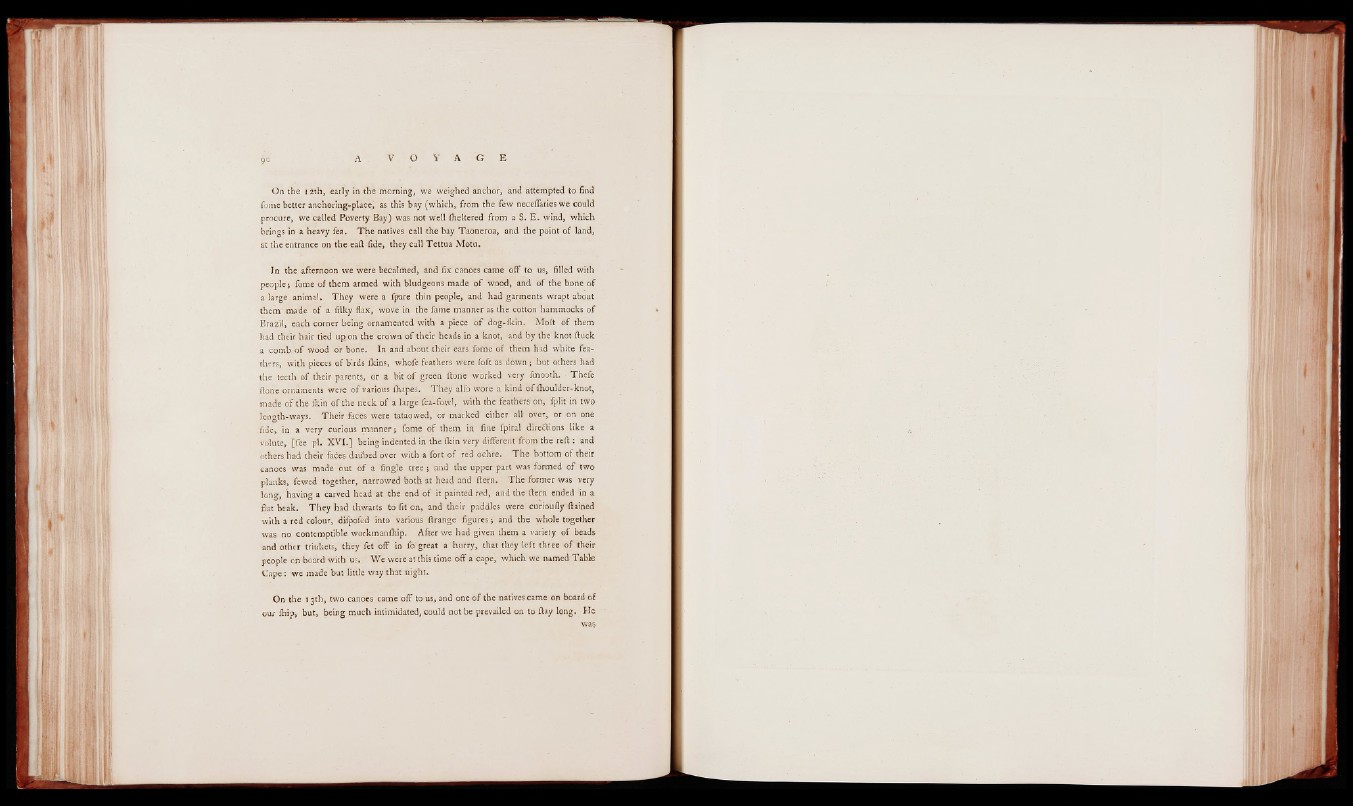
9 ° A V O Y A G E
On the 12th, early in the morning, we weighed anchor, and attempted to find
fome better anchoring-place, as this bay (which, from the few neceffaries we could
procure, we called Poverty Bay) was not well fheltered from a S. E. wind, which
brings in a heavy fea. The natives call the bay Taoneroa, and the point of land,
at the entrance on the eaft fide, they call Tettua Motu.
Jn the afternoon we were becalmed, and fix canoes came off to us, filled with
people j fome of them armed with bludgeons made of wood, and of the bone of
a large animal. They were a fpare thin people, and had garments wrapt about
them made of a filky flax, wove in the fame manner as the cotton hammocks of
Brazil, each corner being ornamented with a piece of dog-ikin. Moft of them
had their hair tied upon the crown of their heads .in a knot, and by the knot ftuck
a comb, of wood or bone. In and about their ears fome of them hid white feathers,
with pieces of birds flans, whofe feathers were foft as down; but others had
the teeth of-their parents, or a bit of green ftone worked very fmooth. Thefe
ftone ornaments were of various fhapes. They alfo Wore a kind.of ihoulder-knot,
made of the ikin of the neck of a large fea-fowl, with the feathers on, fplit in two
length-ways. Their faces were tataowed, or marked either all over, or on one
fide, in a very curious manner ; fome of them in fine fpiral directions like a
volute, [fee pi. XVI.] being indented in the ikin very different from the reft : and
others had their faces daiibed over with a fort of red ochre. The bottom of their
canoes was made out of a Tingle tree ; and the upper part was formed of two
planks, fewed together, narrowed both at head and ftern. The former was very
long, having a carved head at the end of it painted red, and the ftern ended in a,
flat beak. They had thwarts to fit on, and their paddles were curioufly ftained
with a red colour, difpofed into various ft range figures; and the whole together
was no contemptible workmanfhip. After we had given them a variety of beads
and other trinkets, they fet off in fa great a hurry, that they left three of their
people on board with us. We were at this time off a cape, which we named Table
Cape: we made but little way that night.
On the 13th, two canoes came off to us, and one of the natives came on board of
our ihip, but, being much intimidated, could not be prevailed on to ftay long. He